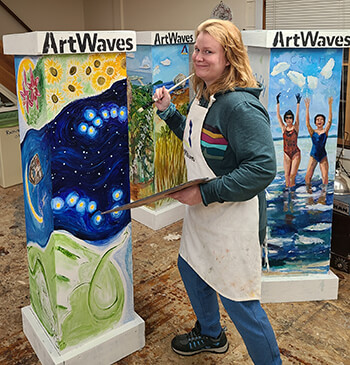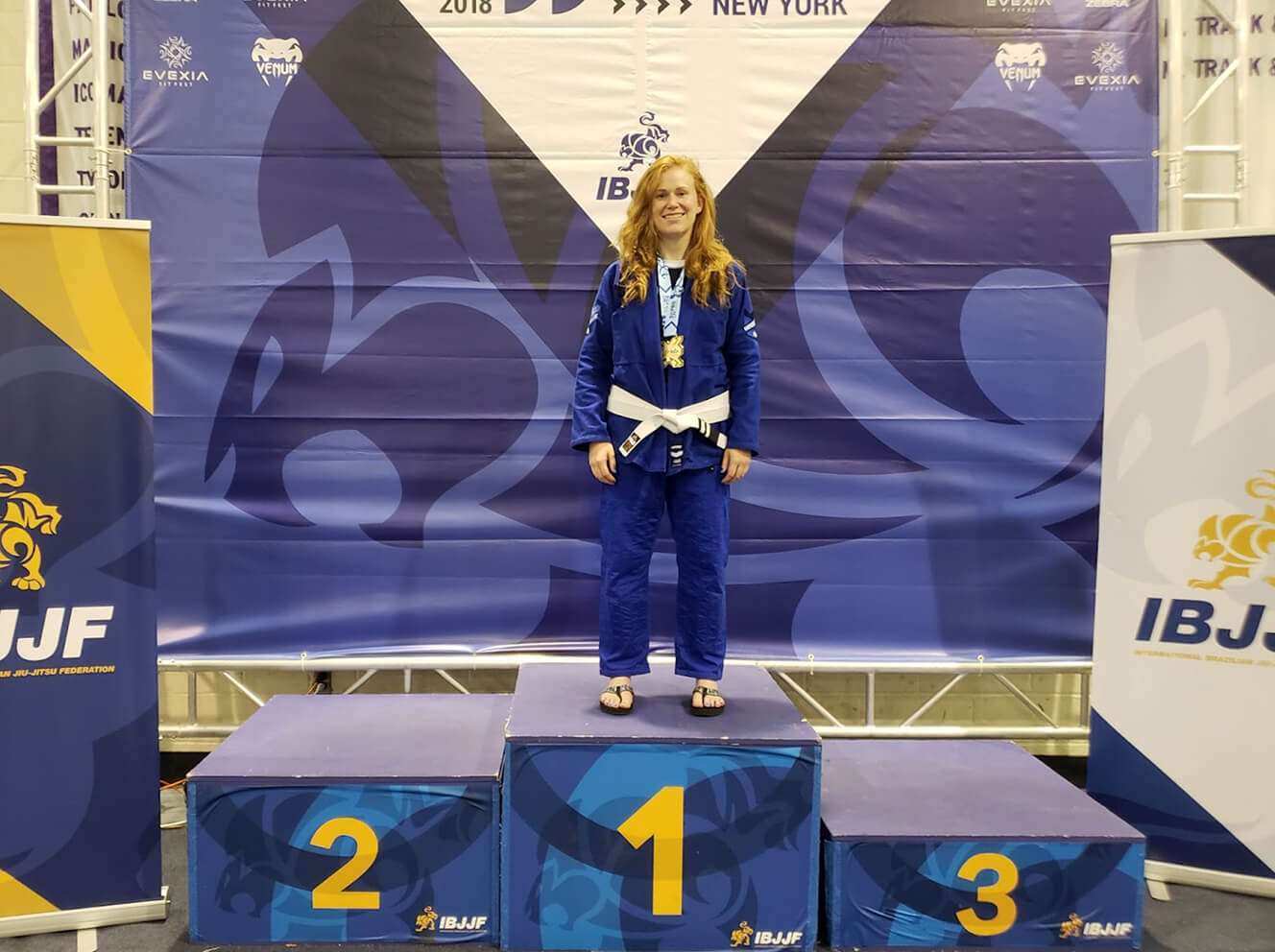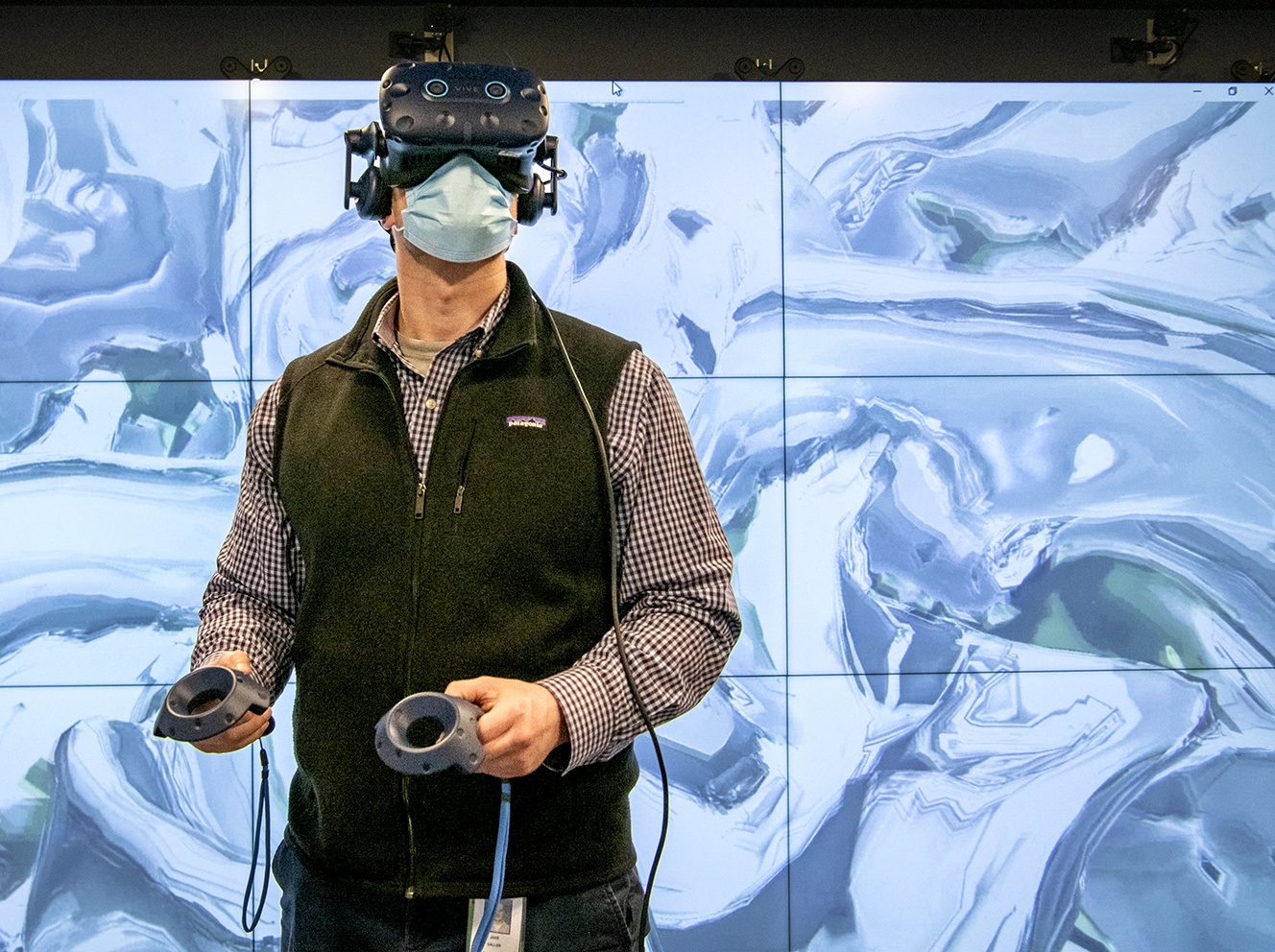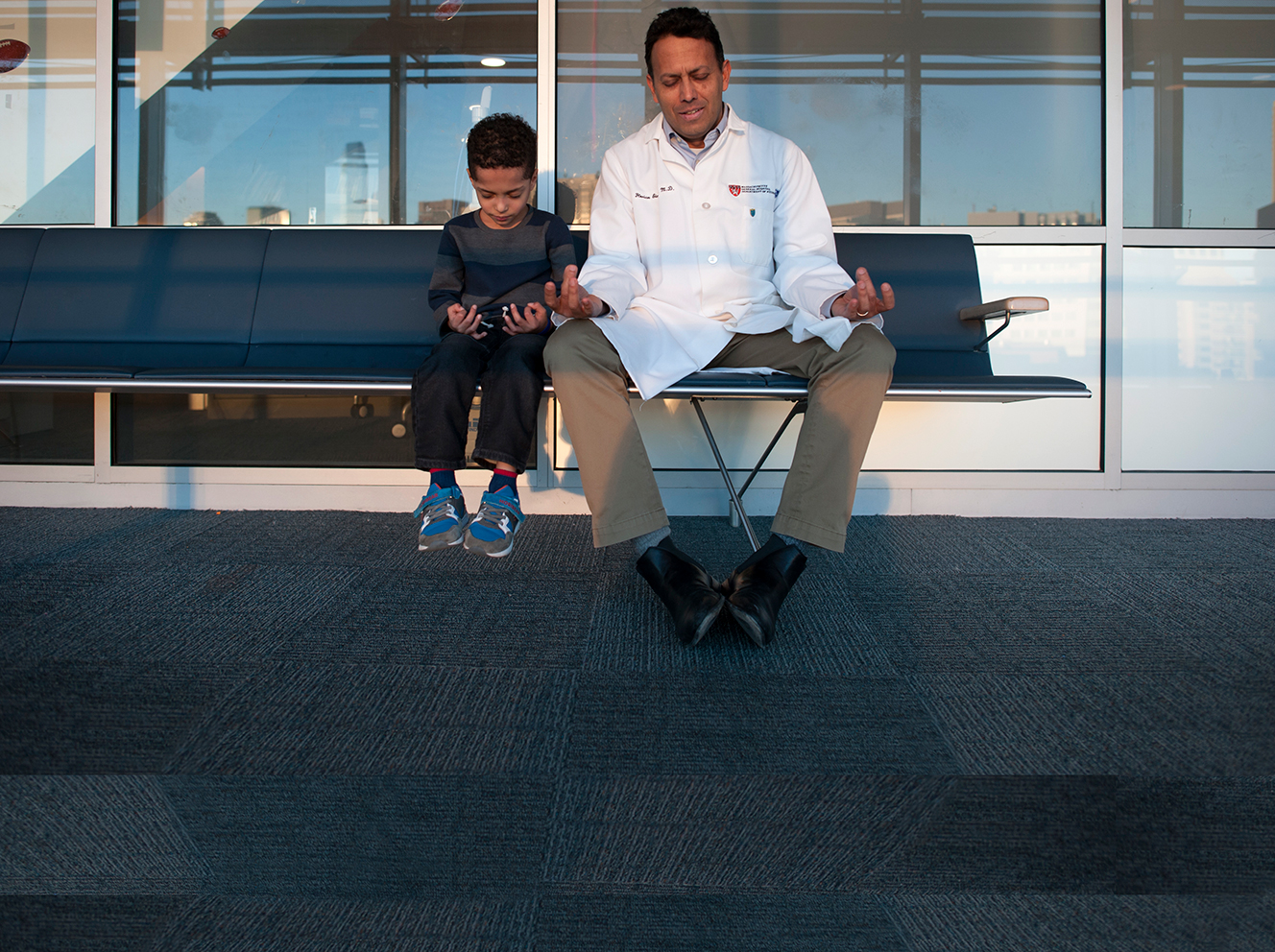Kelly Cutler, 31, was a dedicated self-defense instructor in New York City in 2018, teaching Ethics and Judaica to middle schoolers and wrestling competitively in Brazilian Jiu Jitsu tournaments.
“Between Israeli Krav Maga and Brazilian Jiu Jitsu, I was training 20-25 hours a week and did well in the competitions,” says Kelly, who is originally from Bar Harbor, Maine. “So, it was devastating when I suddenly began experiencing intense pain, leg muscle weakness, dizziness and overall exhaustion.”
Over the course of three months, symptoms intensified to the point where she had to stop training and leave her job as a self-defense instructor.
“This mystery illness was both physically excruciating and emotionally heartbreaking,” she says. “My life came screeching to a halt.”

At first, doctors focused on pain relief, but her symptoms progressed, becoming so debilitating she could barely get out of bed. It wasn’t until she was referred to the MGH Nerve Unit and evaluated by Massachusetts General Hospital neuromuscular specialist Khosro Farhad, MD, and peripheral nerve expert Anne Louise Oaklander, MD, PhD, that Kelly finally got a confirmed diagnosis. That diagnosis was a roadmap toward treatment that addressed the cellular causes of her symptoms, which are allowing her to get her strength — and her life — back.
Small Fiber Neuropathy Too Often Undiagnosed and Untreated
“Kelly was diagnosed with small fiber neuropathy,” says Dr. Oaklander, director of Mass General’s Nerve Unit, a clinician-scientist at the forefront of efforts to develop accurate diagnostic tools and therapeutic strategies for sensory neuropathies. “Although the small peripheral nerve fibers are the type most commonly affected in peripheral neuropathy, most patients with non-motor neuropathies, which leave the muscles intact, linger undiagnosed and untreated because general medical knowledge and public awareness lag behind research advances,” she says.

Kelly has the type of neuropathy that Mass General is helping to put on the medical map — early onset small fiber neuropathy. Although diabetes is the most common cause of neuropathy in the US, children and young adults rarely have the same causes of neuropathies as mature adults. In younger patients, the most common cause appears to be immune system malfunctions that inflict nerve damage. Intravenous immunoglobulin (IVIg), which helps dampen the immune system over-response that attacks nerve fibers, is now the standard treatment for immune neuropathies and what Kelly’s Mass General physicians recommended.
Like others with immune neuropathies, Kelly began to recover when she started IVIg treatments in August 2021.
“I am so grateful my doctors prescribed IVIg,” Kelly says. “It has given me a great deal of relief. I have been able to go back to school part-time, start to reconnect with friends and re-engage with the world through creative endeavors like artwork,” Kelly says.
A Fundraising Match Offer to Advance Research
Kelly’s grandfather, Mel Cutler, says he was impressed by Dr. Oaklander’s research and wanted to help move care forward for Kelly and others with small fiber neuropathy. His foundation, the Melvin S. Cutler Charitable Foundation, began supporting the team right away. When it came time to give again this year, Mel decided to create a matching gift opportunity as part of his support, offering to match all gifts received before December 31, 2022, dollar-for-dollar, up to $54,000.

“It was so difficult to watch my wonderful, vibrant granddaughter suffer, especially when she is a very accomplished and competitive athlete,” says Cutler, “But it is so heartening to see her recovering. We hope this matching gift opportunity will encourage others to support this important work.”
“This is an invisible illness,” Kelly says, “and people simply aren’t aware of it. When you are living with a chronic illness, the challenges of navigating a world designed by and for healthy people are inescapable and overwhelming. People struggling with neuropathies deserve effective treatment, and the way to make that happen is through supporting research on these lesser-known neuropathies and by donating to Dr. Oaklander.”
“It is so heartening to see [my granddaughter] recovering. We hope this matching gift opportunity will encourage others to support this important work.”
Mel Cutler
The illness is gaining more attention, says Dr. Oaklander, because individuals suffering from long-COVID experience similar symptoms. In 2022, her team published a major paper linking long-COVID to small-fiber neuropathy. Kelly says Dr. Oaklander’s research gives her enormous hope as she works to regain her strength.
“Every single day I take a moment to consciously reflect, recognize and appreciate how IVIg treatment has improved my situation.” Kelly says, “A year ago, I was struggling to take 60 steps. Today I was able to take 6,000. I am fortunate, and I am grateful.”
To learn how you can contribute to the Nerve Unit’s research at Mass General, please contact Bridget Flynn at 508.961.8093 or bflynn6@mgh.harvard.edu or make a gift online here.



